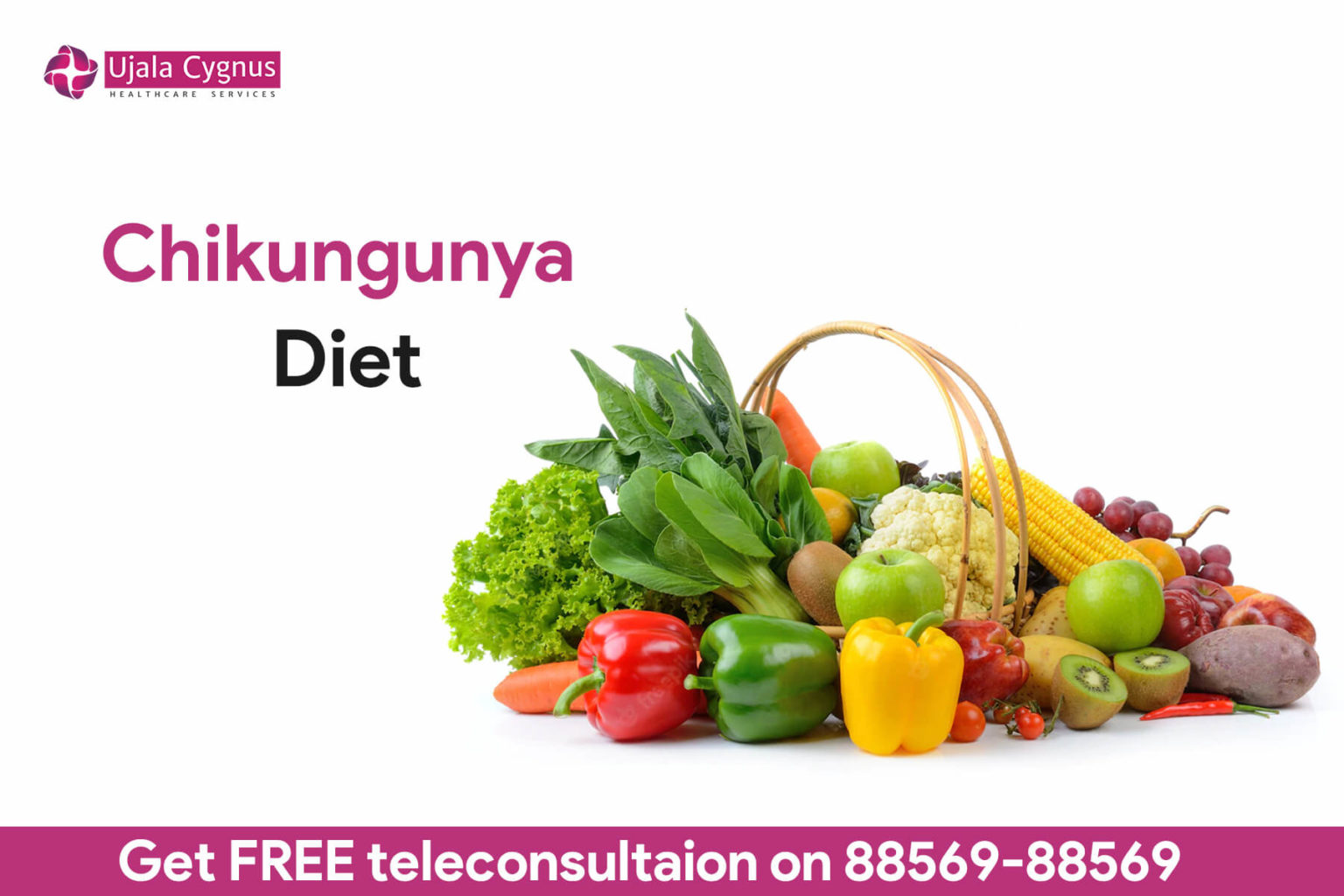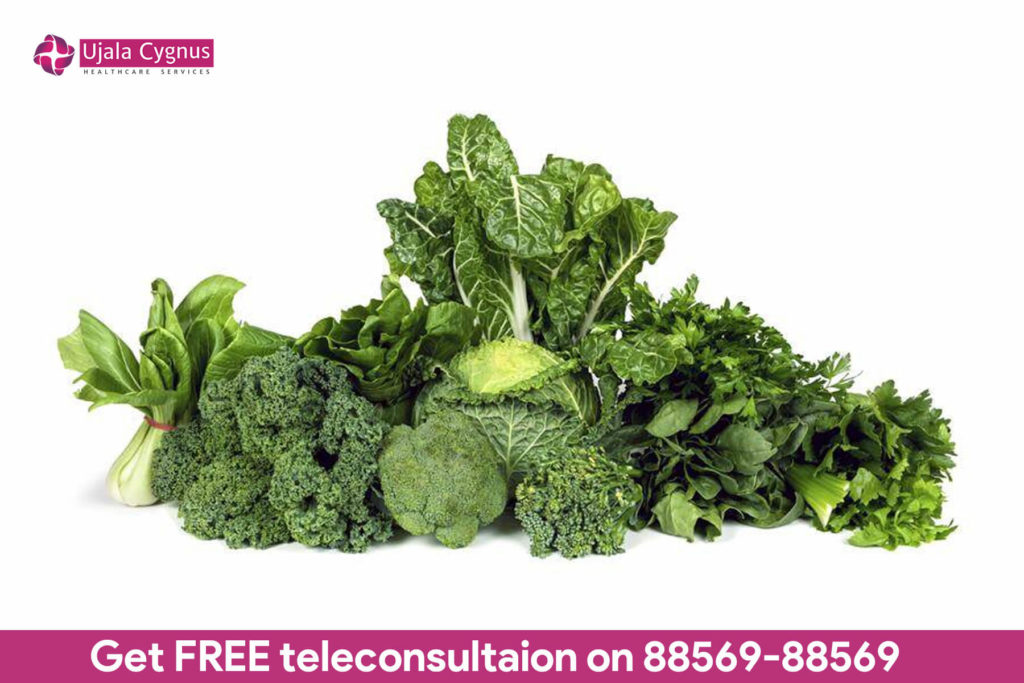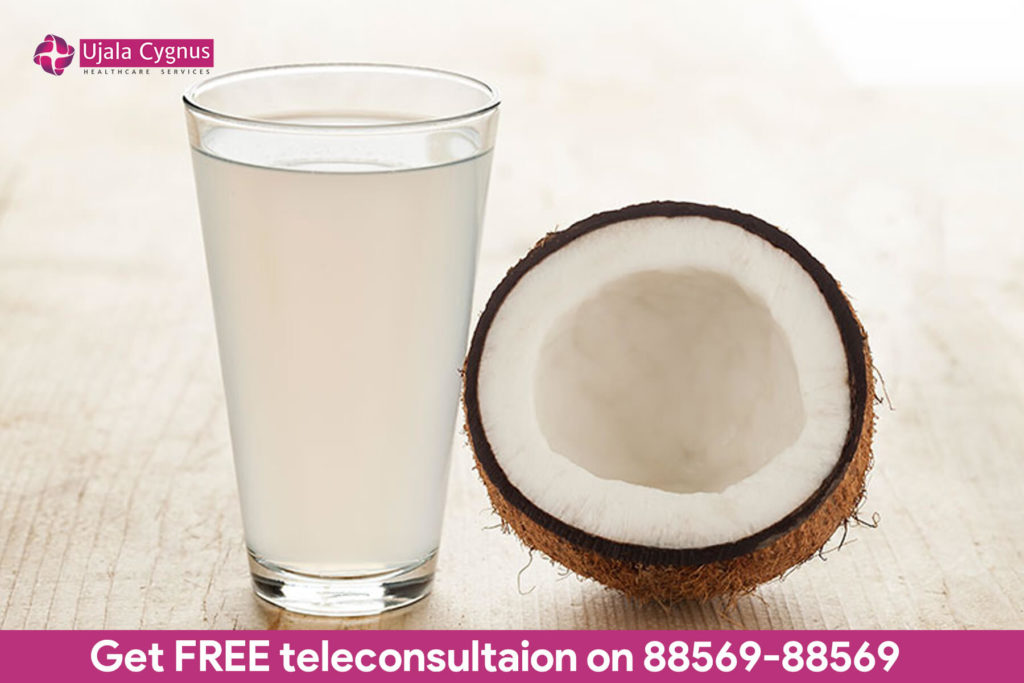Chikungunya Treatment Food: Best Foods For Recovery From Chikungunya

Those who had chikungunya before will tell you that it is nothing less than a nightmare. Chikungunya is a viral disease with symptoms such as fever, rashes, headaches, and joint pain. It’s essential to take the proper medications and do some mild exercises. Along with taking medications and staying active, a person should focus on his diet. It is vital to remember what foods to eat and avoid during chikungunya, as eating a balanced diet is half the battle won.
Keep reading to know the superfoods that will help you fight with chikungunya and result in speedy recovery.
Read more about Chikungunya: Chikungunya: Everything You Need to Know
Chikungunya Diet: Foods to Eat
Doctors and nutritionists will tell you the importance of the chikungunya diet chart. Let’s look at some food items that help in speedy chikungunya recovery.
Green Leafy Veggies: The best food with enormous health benefits is green leafy vegetables. Green veggies are a superfood as:
- They are easy to digest.
- Low in calories.
- High content of vitamin A safeguards the body against diseases such as cancer and promotes bone growth.
- High content of vitamin C helps prevent arthritis. It helps alleviate chikungunya symptoms, including joint discomfort, while also preventing the disease.
Vitamins C and E Rich Foods: Vitamin C improves immunity, crucial for chikungunya treatment, while vitamin E enhances overall health. If you have chikungunya, increase the intake of food items rich in vitamin C and E.
To do so, you can eat:
- Fresh fruits like kiwis, oranges, guavas, pineapple, papaya, sweet lime, Indian gooseberry, mangoes, melons, pomegranate, berries, etc.
- Vegetables like broccoli, yellow bell peppers, tomatoes, etc.
Soups: In Chikungunya, freshly homemade soups are a great relief. Consuming soups can help ease symptoms and promote a speedy recovery.
Include the following soups in your diet:
- Carrot soup as it is high in vitamin A.
- Broccoli and Tomato soup, as they are high in vitamin C.
Chromium Rich Foods: A chikungunya patient should consume a diet rich in chromium, zinc, and selenium to supply vital minerals to the body and recover from weakness rapidly. Food items like grapes, broccoli, other fruits, vegetables, etc., are a great choice.
Coconut water: Staying hydrated is crucial to remember while suffering from this sickness. Coconut water aids in the detoxification and hydration of the body.
Herbal Tea: The best way to reduce joint pain caused by chikungunya is to drink hot herbal tea with herbs like fennel, caraway, and cumin seeds. Boil these seeds in water until the water level decreases to 3/4 of its original volume. You can add honey/jaggery for a better flavor.
Omega-three Fatty Acids: Including Omega-three fatty acid-rich foods in a chikungunya patient’s diet can help to reduce inflammation. Flaxseeds, walnuts, almonds, chia seeds, and fish including tuna, mackerel, sardine, salmon, trout, and others are high in omega-three fatty acids.
Liquid-Based Foods: Patients with chikungunya must drink enough fluids. Fluids assist in the removal of toxins from the body. Nutritional foods include yellow daal, carrot soup, tomato soup, chicken soup, coconut water, cow milk, lemonade, etc.
Chikungunya Diet: Foods to Avoid
While eating the foods listed above will help you fight chikungunya, there are some other foods you should avoid. Here are some foods you shouldn’t consume if you have chikungunya.
Food from Outside: The load on the digestive system increases when you eat outside food. The spices are used liberally in outdoor food to make it delicious. There is a chance of stomach infection, which can progress to other health problems and risk the patient’s health.
Non-vegetarian Food: Non-vegetarian food puts more strain on the liver for digestion. Hence, avoiding non-veg food and consuming plenty of veggies and fruits is a good idea.
Oil & Spices: The Chikungunya virus can cause digestive problems. As a result, it’s best to stick to foods with fewer spices and fewer oils. Eat light food with minimum oil and spices.
Junk & Sugary Foods: Avoid sugary, junk, and bakery foods.
Frozen Foods: Try not to consume processed and frozen foods.
Beverages: Avoid alcohol, caffeinated and carbonated beverages.
To get relief from chikungunya, avoid smoking as well.
Conclusion
Diet is very important for your overall health and it also decides how fast you recover from a disease. While you are recovering, the right choice of food items can promote a speedy recovery.
Add and avoid all the food items mentioned above if you have chikungunya or are recovering from it. If you need a proper chikungunya diet chart, you can consult our expert dietician for FREE at 88569-88569.
Frequently Asked Question (FAQs)
1. What are the home remedies for chikungunya?
Home remedies for treating chikungunya are as follows:
- Giloy
- Tulsi leaves
- Papaya leaf juice
- Turmeric milk
- Garlic paste
- Coconut water
These home remedies might not work for everyone, To avoid further complications get a free consultation with our doctor. Call 88569-88569
2. How can I use papaya leaves for chikungunya?
This is the ram-baan treatment for chikungunya, dengue and zika patients. Take 2 tablespoons of papaya leaf juice every three hours for two to three days to treat dengue, chikungunya, or zika symptoms. Continue for a week if symptoms persist.
Ujala Cygnus Healthcare Group has 16 hospitals. Kanpur, Rewari, Kashipur, Varanasi, Sonepat, Panipat, Kurukshetra, Nangloi in Delhi, Rama Vihar in Delhi, Kaithal, Bahadurgarh, Karnal, Moradabad, Haldwani, and Agra. You can book an appointment at your nearest Ujala Cygnus Hospital for any health issue treatment. For any query, you can give a missed call on 88569-88569 and get a free consultation over the phone.
